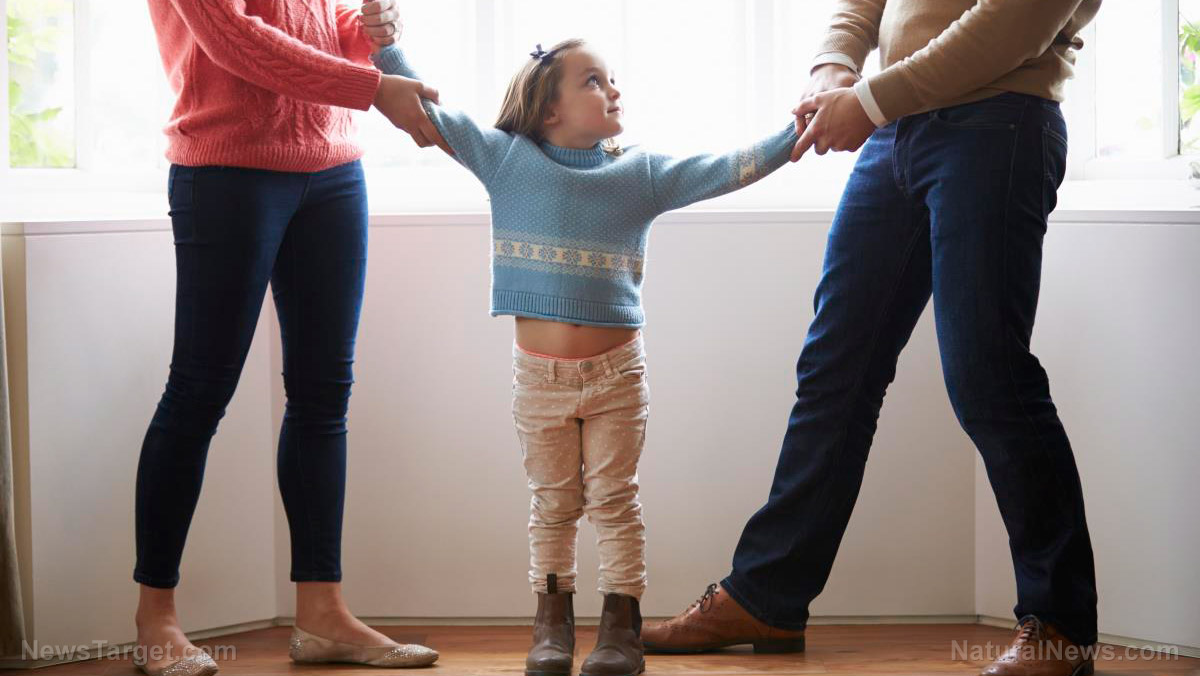The health consequences of divorce: Research finds children are at elevated risk of multiple disorders
06/23/2018 / By Russel Davis

Divorce not only affects couples, but also wreaks havoc on their children’s health. A team of Spanish researchers have designed and developed a cross-sectional study of families in order to determine the effects of divorce on pediatric patients. The study had a total cohort population of 467 boys, girls and teenagers aged between two and 18 years.
The results showed that children with divorced parents are about twice as likely to develop gastrointestinal and genitourinary conditions than their counterparts living in nuclear families. Likewise, the findings revealed that children with divorced parents are at an increased risk of suffering from dermatological or neurological issues compared with those whose parents did not separate.
However, the research team did not find a correlation between divorce exposure and respiratory, cardiovascular, or musculo-skeletal issues. The experts have also noted that divorce exposure is not associated with an increased risk of allergies, or hearing and sight problems. The scientists infer that inadequate divorce management may play a central role in various health concerns among children. The health experts explain that high levels of conflict, a lack of co-parenting, or violence within the family may raise the odds of divorce-related effects on children’s health.
“It is not the break-up in itself that has negative effects on the children’s health, but improper handling of the situation by the parents. This is indicated in the scientific literature and validated by our data. Poor handling involves very high levels of interparental conflict, which makes it very difficult to maintain a good relationship. If children are exposed to these family situations for prolonged periods, they often experience toxic stress,” co-author María Dolores Seijo Martínez tells Sinc La Ciencia es Noticia online.
“We need to support families in order to reduce these consequences. Professionals in direct contact with children, such as primary care workers or school staff, have a very important role in reducing toxic stress, as they are in a position to design and implement new interventions oriented towards protection and prevention,” Seijo Martínez adds.
A 2012 study from the American Academy of Pediatrics (AAP) confirms the recent study’s findings. According to the study, adversity alone may not serve as a predictor of maladjustment and maladaptive health in pediatric patients. The study stresses that the absence of good relationships that provide protection and support may greatly compromise the children’s health following their parent’s divorce.
Expert breaks down divorce’s impacts on children of different ages
Dr. Gail Gross, a human behavior, parenting and education expert, has stressed that children of varying ages react differently toward their parent’s divorce. The health expert stresses that toddlers ages one to three years old have limited cognitive ability, and often get confused about the concept of divorce. Dr. Gross adds that toddlers are not yet equipped with coping skills that facilitate adjustments. This, in turn, renders them more susceptible to emotional issues later on. (Related: Removing joint finances after a divorce is key to removing ex-spouses from credit reports.)
On the other hand, the author and behavior expert stresses that divorce may negatively impact education in children ages six to 12 years old. The expert notes that these age group are likely to feel responsible for their parent’s divorce and potential reconciliation. The scientist adds that this age group is more likely to grieve about their parent’s failed relationship, and are at an increased risk of exhibiting regressive or aggressive behavior. Moreover, children ages six to 12 years old are more likely to choose sides and criticize one parent over the other.
“Divorce is never easy for anyone involved. It is an emotionally challenging psychological journey for both parents and children to undergo. But in the end, the most important thing to remember is the vulnerability of your children. Therefore, your main job as the parent is to help your children adjust successfully, to be there for them, and to make sure they know they are loved,” Dr. Gross writes in a Huffington Post blog.
Sources include:
Tagged Under: behavior problems, children's health, divorce, health problems, mental health, Mind, mind body science, psychiatry, research, skin disorders




















